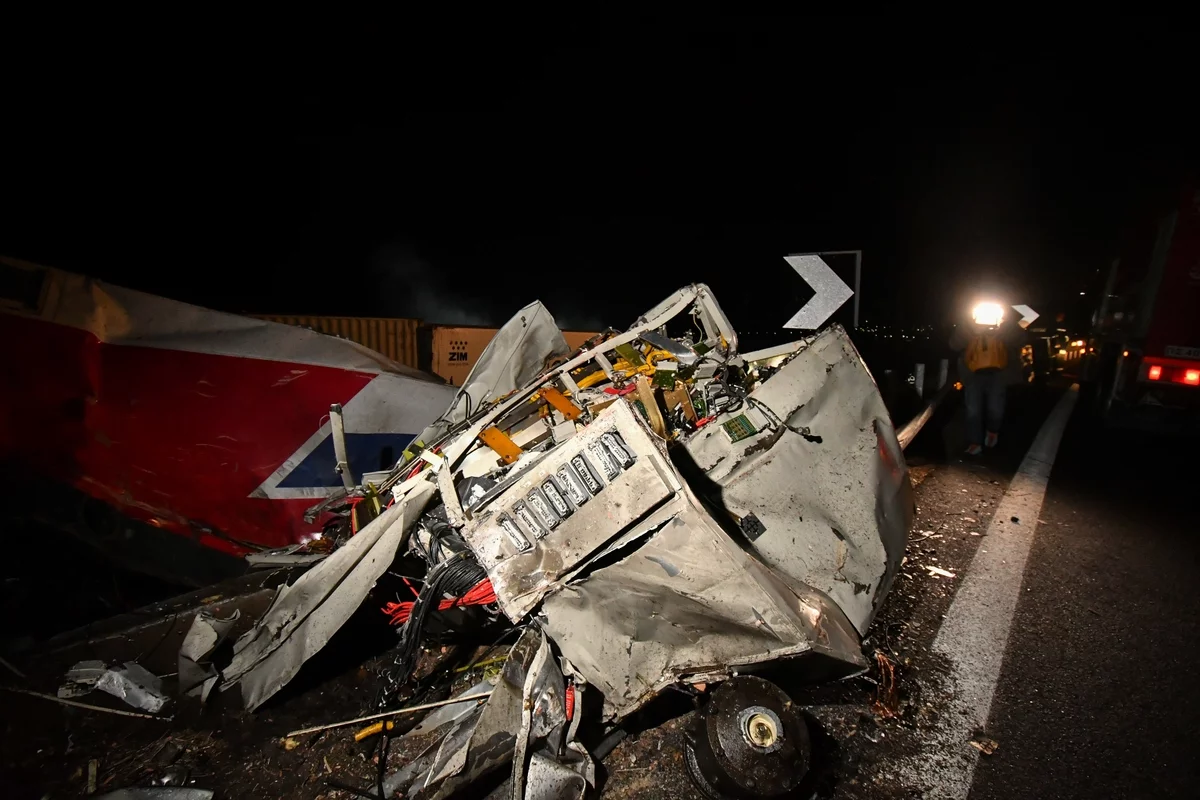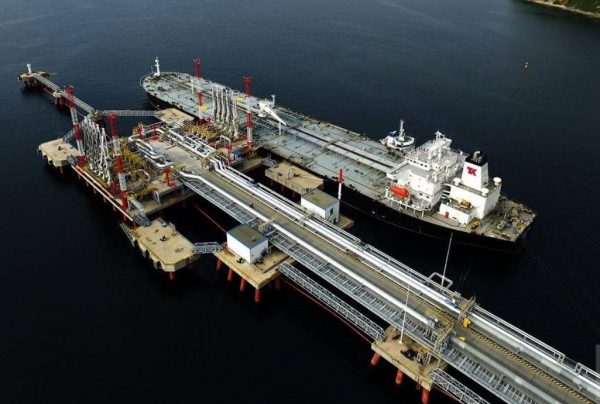
A criminal investigation has commenced into the actions of the Larissa rail station master, as the 59-year-old man was taken into custody hours after late Thursday night’s unprecedented train collision in north-central Greece.
The head-on crash of a passenger and freight trains, north of the city of Larissa, has resulted in at least 36 deaths so far, with dozens of passengers unaccounted for and scores injured, including a handful of people treated in hospital ICUs.
Another two individuals, a switchman for the specific segment of the line and a representative of Hellenic Rail, the Greek subsidiary of Italy’s FS, also gave statements to authorities in the wake of the deadly transportation accident.
According to media reports in the country, the detained station master maintained, in testimony given before investigating prosecutors, that he correctly and promptly pressed a button to steer the north-bound passenger train off the tracks being used by the south-bound freight train and onto another line, while reportedly claiming that the “system didn’t”.
Based on reports of his initial testimony, the railways employee said “…I pressed the button normally, as the system is automated to allow for a change in rail tracks. As such, each train would have entered into a different rail line; however, the system didn’t work.”
Other reports, however, state that rail network supervisors must confirm, by sight, that the system has been properly activated and that the tracks switched.
Revisions in Greece’s criminal code in past years have elevated omissions and offenses associated with fatal transportation accidents into felony counts, with a conviction resulting in a sentence of 10 years to life imprisonment – although the maximum time served in the country is now a little more than 19 years.
Meanwhile, two past documents citing rampant problems with rail transports in Greece – daily delays, problems on the main Athens-Thessaloniki line, the repeated cutting of cables and subsequent interruption of service – were the subject of intense scrutiny after Tuesday’s deadly crash.
One document, dated April 27, 2022, shows the head of a project to install the European Rail Traffic Management System (ERTMS) / European Train Control System (ETCS), resigning over what he called his disagreement with the non-implementation of the system along at least two portions of the Athens-Thessaloniki line.
In another announcement only three weeks ago, unions representing rail workers in Greece warned that “…as long as protection measures aren’t in workplaces and for the safe operation and movement of trains, accidents will have no end … we won’t wait for the accident that’s coming.”
Moreover, in a statement on Feb. 15 – https://ec.europa.eu/commission/presscorner/detail/en/ip_23_593 – the EU Commission referred GREECE to the EU Court of Justice “for failure to comply with rules on railway transport.”
Among others, the statement read: “Despite exchanges between the Commission and Greece, the national authorities have still not signed and published the contractual agreement with the Greek railway infrastructure manager, OSE.
“The Commission opened an infringement procedure against Greece in December 2020 and sent a reasoned opinion in December 2021. Since Greece remains in breach of the directive, the Commission has now decided to refer the case to the Court of Justice of the European Union.”
Latest News

Cost of Living: Why Greece’s 3% Inflation Is Raising Alarm
Greece appears to be in a more difficult position when it comes to price hikes, just as we enter the era of Trump’s tariffs.

Fitch Ratings Upgrades the Four Greek Systemic Banks
NBG’s upgrade reflects the bank’s ongoing improvements in its credit profile, Fitch notes in its report, including strong profitability, a reduction in non-performing exposures (NPEs), and lower credit losses

Trump to Announce Sweeping New Tariffs Wednesday, Global Retaliation Expected
With Trump's announcement just hours away, markets, businesses, and foreign governments are bracing for the fallout of one of the most aggressive shifts in U.S. trade policy in decades.

Inflation in Greece at 3.1% in March, Eurostat Reports
Average inflation in the eurozone settled at 2.2%, compared to 2.3% in February

Greece’s Unemployment Rate Drops to 8.6% in February
Despite the overall decline, unemployment remains higher among women and young people.

Jerry Kalogiratos Highlights Key Role of Energy Transition and Data Demand in LNG Outlook
Energy transition and the prospects of LNG were discussed at Capital Link’s 19th Annual International Maritime Forum, during a panel discussion with Jerry Kalogiratos (Capital Clean Energy Carriers Corp.)

Santorini Safe and Ready for a Dynamic Tourism Season
Authenticity, cultural heritage, and genuine experiences at the center of Santorini's new promotional campaign

Electricity Bills: Greece Announces Reduced Tariffs Schedule
Greece will now offer lower electricity rates between 11:00-15:00 and 02:00-04:00

Chevron Confirms Eyeing Natural Gas Exploration South of Crete
Chevron recently declared its intent to explore a third area, south of the Peloponnese.

Evangelos Marinakis: A time of change from which shipping can benefit
Speaking at the 19th Annual Capital Link International Shipping Forum Evangelos Marinakis stressed the challenges that shipping faces today












![Τουρκία: Μεγάλες βλέψεις για παραγωγή ηλεκτρικών οχημάτων [γράφημα]](https://www.ot.gr/wp-content/uploads/2025/03/ot_turkish_autos-90x90.png)











![ΕΛΣΤΑΤ: Αυξήθηκε η οικοδομική δραστηριότητα κατά 15,6% το Δεκέμβριο [πίνακες]](https://www.ot.gr/wp-content/uploads/2025/03/DSC9655-2-1024x569-1-90x90.jpg)

















 Αριθμός Πιστοποίησης
Αριθμός Πιστοποίησης